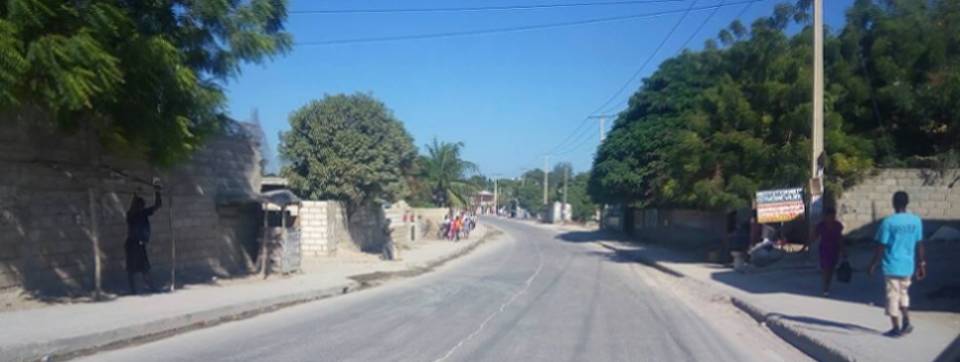

Resistance to government budget empties street in Port-au-Prince.
While hurricanes Harvey and Maria didn’t strike Haiti, Hurricane Irma gave the country a glancing blow mainly in the northwest, the poorest section of Haiti. It displaced more than 100,000 people and destroyed crops, roads and infrastructure. The rest of the country was spared but lost a major food source.
Nevertheless, a social and economic hurricane is hitting the country now, fueled by avarice and greed, and will continue to hit Haiti for the foreseeable future. It is the new tax code, embodied in the budget that went into effect Oct. 1.
Under this code, drivers who want to renew their licenses will have to pay $158 for an income tax report. All Haitians — even those living abroad — who want to use governmental services, such as getting a professional license, a passport, a diploma or school transcript, vaccines and so on, will annually have to pay 10,000 gourdes ($159 at the current exchange rate).
The association of public transport drivers and owners called a strike on Sept. 18, which was widely followed in Port-au-Prince, as well as in some major cities outside the capital. Workers used the bus strike as an excuse to stay away from work, making it an undeclared general strike.
The representatives of the Protestant churches in Haiti and the head of the council of Voudou practitioners both issued statements opposing this new budget and demanding that Haitian President Jovenel Moïse back down. The Voudou council explicitly supported protests. (Haïti-Liberté, Sept. 20)
Moïse went to the U.N. General Assembly on Sept. 21, giving him a chance to address world leaders from the U.N. podium. He also met with two major world economic leaders: Luis Alberto Moreno, head of the Interamerican Development Bank, and Christine Lagarde, executive director of the International Monetary Fund.
While Moïse was in New York, a coalition of groups in the Haitian community called two demonstrations against his new budget and taxes, which also apply to Haitian citizens living in the U.S. The first rally was held the night of Sept. 20 in a Brooklyn church called the Evangelical Crusade of Fishers of Men. The next day a protest was held in front of the U.N. building. Groups calling this demonstration included Fanmi Lavalas (Lavalas Family) New York, Pitit Desalin (Dessalines Children) of NY, Ayiti Libète (Haïti Liberté), Radyo Pa Nou, SOHD and KAKOLA.
When Moïse returned to the Port-au-Prince airport, he decided to march to the National Palace. He had with him cops, a security detail, members of his Bald-Headed Haitian Party (PHTK), as well as a few hundred former soldiers, (One of his pet projects is reconstituting the Haitian army.)
As the parade left the airport, it was met with bottles and rocks, so his security team rushed him into a car.
A bus operator strike and other protests called for Sept. 28 and 29 were called off, or postponed to Oct. 2 and 3, for a variety of reasons; yet some protests still took place. Forty-nine of Haiti’s 140 city halls closed their doors and went on strike for three days, from Sept. 25 to 28, to protest the new tax code.
HaïtiLibre.com reported Oct. 1 that the government had made some concessions and some sections of the bus operators were calling off their strike.
The situation is fluid. Traditional trade unions and workers groups with their own grievances, as well as community groups, are very likely to continue pushing to have the new budget/tax code withdrawn.
What the U.S. wants above all else in Haiti is stability. As long as Moïse can keep the lid on resistance, keep Haitian labor cheap and keep Haiti’s markets open for U.S. goods like rice, the U.S. will keep supporting his rule.
Download the PDF. Download B&W version. Millions tell Trump, Musk: ‘Hands off!’ Tariffs, the stock…
At the start of 2025, Forbes magazine identified 902 billionaires in the U.S., overwhelmingly men.…
Workers World Party invites you to join our Telegram channel (t.me/WorkersWorldParty). The channel provides its…
The Constitutional Court of South Korea voted unanimously April 4 to uphold the impeachment of…
April 7 Since April 2, the U.S. stock market has lost $6.6 trillion in value.…
New York City A spirited crowd marched on Billionaires’ Row in New York City April…